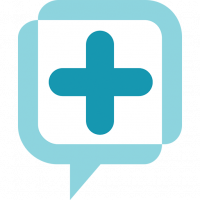In the spring of 2021, we are finally seeing the beginning of the end of the coronavirus pandemic. During the past year we experienced a perfect storm of stresses and adjustments to our lives. This year we celebrate Alcohol Awareness Month in April and Mental Health Awareness Month in May.
It is appropriate that these two awareness months come so close together. Symptoms of anxiety disorder, depressive disorder and substance abuse were reported by the Centers for Disease Control (CDC) in over 40% of respondents in the United States during April–June of 2020. Community-level intervention and prevention efforts, including health communication strategies, designed to reach people with these symptoms could help address various mental health conditions associated with the COVID-19 pandemic.
According to a survey from the American Addiction Centers of 3,000 Americans working from home, roughly 32% of respondents claim to be drinking during work hours. This isn’t entirely surprising. Working from home has never been a vacation. Now add the stressors of children at home from shuttered daycare and schools, financial concerns surrounding the loss of a job or reduced hours, or loneliness from a lack of contact from friends and family, and the anxiety of the whole situation is understandable.
Alcohol May Be Used to Self-Medicate
Alcohol may be used to reduce feelings of loneliness, depression and anxiety. During this uncertain time, it’s important to acknowledge these challenges and emphasize why it is best to avoid using alcohol to self-medicate, because it can make feelings of depression and anxiety even worse.
How Depression and Alcohol Are Linked
Some people drink alcohol in an attempt to cope with their depression. People can be drawn to the sedative effects of alcohol as a kind of medication, helping to distract them from persistent feelings of sadness. Once a person regularly abuses alcohol, physical dependence and addiction can quickly follow. According to WebMD, about a third of those who suffer from major depression have a co-occurring alcohol use disorder, so it’s understandable that those who suffer from depression may seek out the temporary relief that alcohol can provide. However, again, alcohol abuse simply compounds the depression.
How Anxiety and Alcohol Are Linked
Some people resort to the consumption of alcohol in an effort to deal with their anxiety issues. Because alcohol is a depressant and has a sedative effect, people often use the substance to unwind. As a person’s blood alcohol concentration rises, they often experience increased levels of relaxation. Some individuals use this tactic in order to mitigate stress in their lives.
The Anxiety and Depression Association of America (ADAA) notes that 20 percent of people dealing with social anxiety disorder suffer from some form of alcohol abuse or dependence. While alcohol can reduce anxiety temporarily, it can also increase anxiety within just a few hours of consumption. This can happen with even moderate amounts of alcohol, and the effects on anxiety can last into the following day.
What Can A Hospital Marketer Do?
Start the conversation
Talking about alcohol may not seem like a priority right now, but for many people alcohol has become their coping mechanism. People drink alone, together, when celebrating and when commiserating. Some drink a lot, some a little, and others don’t know when or how to quit. The best thing to do right now is to start the conversation and raise awareness of how even casual drinking can become a problem in certain situations.
Raise awareness in your community of the signs of an alcohol problem:
- It’s escalating – you are drinking more every week
- It’s becoming a preoccupation
- It’s crowding out other activities
- It’s interfering with work and relationships
- Others are concerned
- You feel defensive
- You’re being secretive
Connect to Your Audience with Digital Tools
Medicom Health offers Anxiety and Depression Symptoms Assessments to health systems. For those who have never sought care for behavioral health conditions, a depression or anxiety assessment may help them to discover treatment is necessary. Both assessments identify those who should undergo additional screening via telehealth or primary care.
Hospital marketers can add custom questions to the Depression and Anxiety Symptoms Assessments to assess if alcohol or other substance abuse is a problem. Contact our Client Success team to find out how.















 Thank you for your interest.
Thank you for your interest.